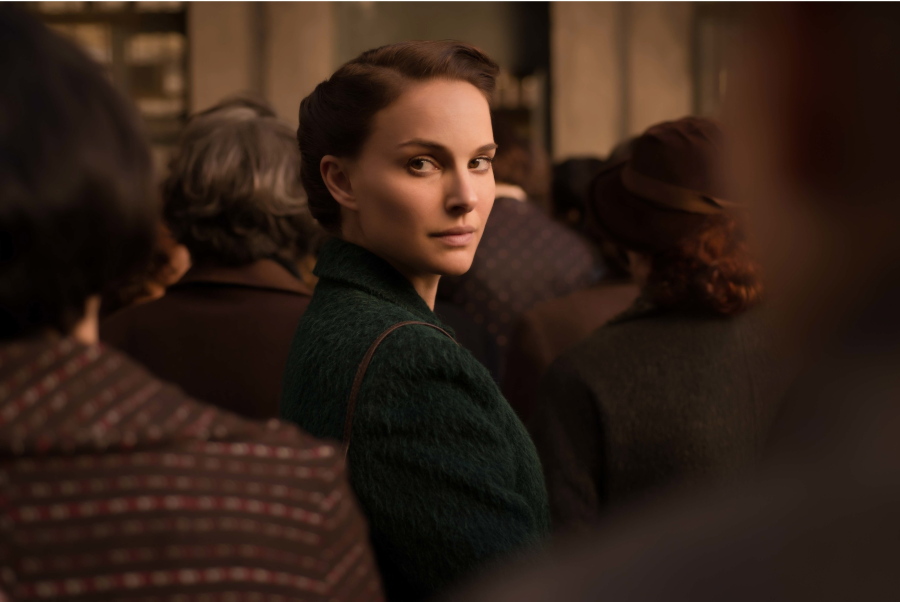Disappointingly true to its title, “A Tale of Love and Darkness” is dark and somber in just about every way. In her feature directorial debut — which she also wrote and stars in — Natalie Portman has adapted celebrated Israeli author Amos Oz’s 2002 autobiographical novel of the same name into a dour and emotionally cold film.
Oz’s best-selling book chronicles his childhood in Mandatory Palestine and post-statehood Israel, the background to his birth as a writer. Set against this momentous historical period is the story of the author’s mother, Fania (Portman), a troubled woman who had a great impact on his life.
The Hebrew-language film opens in darkness, as Fania tells a bedtime story to young Amos (Amir Tessler), the pitch-black screen eventually giving way to shots of their hands and faces. An only child, Amos lives in Jerusalem with Fania, an unhappy housewife with a severe mien who is treated badly by both her mother and mother-in-law, and his intellectual father, Arieh (Gilad Kahana), a librarian and frustrated writer.
The narrator, who represents the 70-something Amos Oz today, explains that both Fania’s and Arieh’s families fled Europe due to anti-Semitism. As the years wear on, sensitive Fania becomes increasingly unable to cope with the hardships of life in Israel — which is very different from the promised land she had imagined — along with the burden of her unhappy marriage.
Were the story not already heavy, Portman’s interpretation of Oz’s engaging and even humorous (if rambling) book lacks emotional resonance. The central characters remain distant from both each other and the viewer, their feelings seemingly muted. Amos mostly reacts to Fania’s parables and ruminations with wide-eyed silence. Scenes with great dramatic potential — such as the 1947 U.N. vote to partition Palestine, which Amos’ family and neighbors hear live on the radio — are presented with an inexplicable tone of detachment.
Further, the script suffers from an excessive faithfulness to its source. Dialogues and narration that read as deep or literary in the book often seem stilted or overwrought on the screen. Scholarly Arieh’s etymological explanations and word plays, for example, come across as awkward attempts at profundity.
The movie is also gloomy on a visual level, from the family’s dreary house and drab clothes to the cinematography, which emphasizes the darker, more yellowish colors of the spectrum in a way that evokes old photographs. Only Fania’s dreamlike flashbacks to her childhood in Rovno (then Poland, now Ukraine) and her surreal fantasies of escape are shown in more a vivid palette.
It’s intriguing to watch the American-raised Portman act in fluent Hebrew. The actress, who was born in Israel, spent many years getting the film off the ground and has said it was a labor of love that grew out of her deep admiration for Oz’s memoir. Unfortunately, darkness seems to have prevailed over love in a tale that falls flat.



